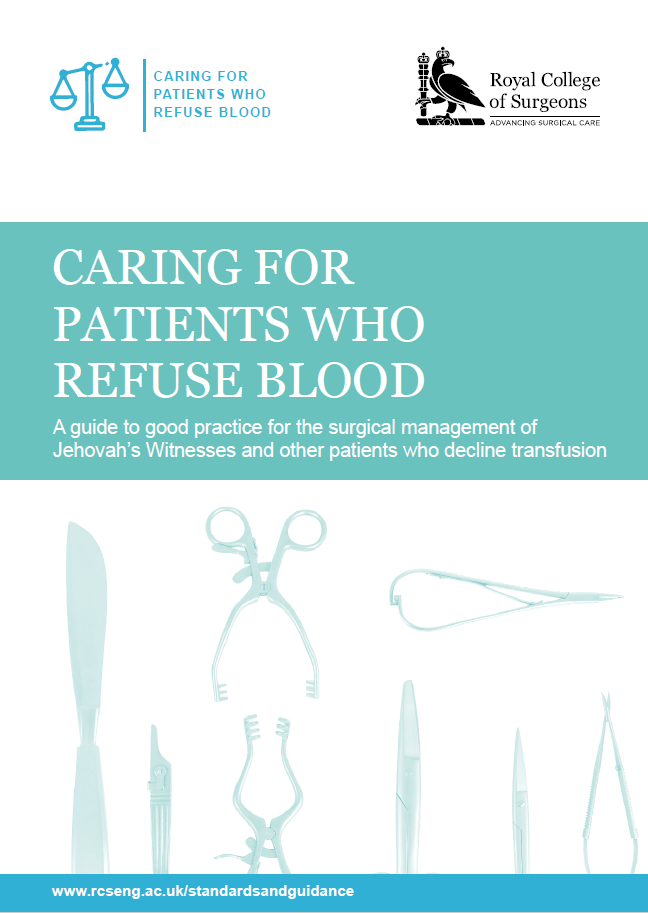Caring for Patients who Refuse Blood

It is estimated that there are approximately 8 million Jehovah’s Witnesses worldwide, with 140,000 currently resident in the UK. Jehovah’s Witnesses have refused allogenic blood transfusion and primary components (red cells, white cells, platelets and plasma) on religious grounds since 1945. Further to Jehovah’s Witnesses, a growing number of patients are choosing to decline blood transfusions, many of whom do so for reasons other than religious faith. Fears about the safety of blood transfusion as well as the scarcity of donors and changing patient expectations are leading some patients to withhold consent for blood transfusion when requesting surgery.
This refusal can bring into conflict clinicians’ ethical duties to preserve both the life and the wellbeing of patients, as well as respect their right to make autonomous decisions about what happens to their body.
Who is this guide for?
This guide is primarily aim at surgeons who are operating on patients who have refused blood transfusions, however most of its recommendations are applicable to other medical specialties.
What can I learn from this guide?
This document provides guidance on the surgical management of Jehovah’s Witnesses and other patients who withhold consent to blood transfusion. It takes into account and expands on the principles set out in Good Surgical Practice (RCS, 2014), Consent: Supported Decision-Making – A Guide to Good Practice (RCS, 2016) as well as guidance from the GMC and NICE, to enable surgeons and their teams to provide high-quality care to Jehovah’s Witness and other patients who refuse blood transfusion while respecting their right to make autonomous decisions about treatment.

Read the guidance here
